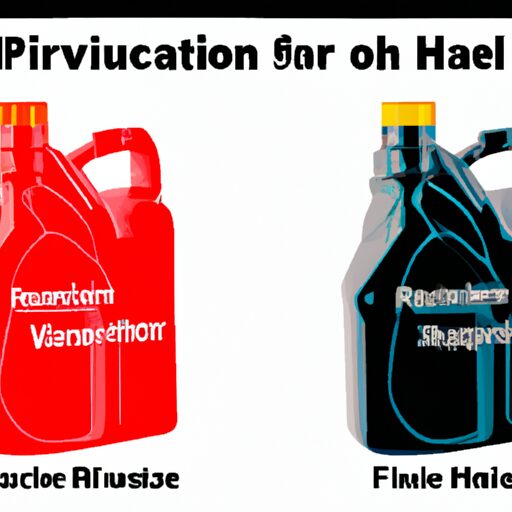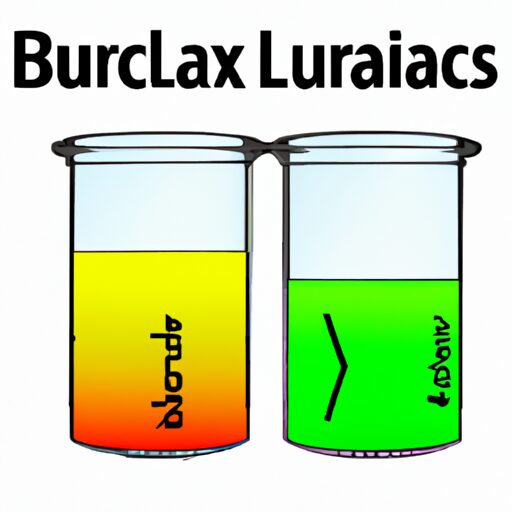Can You Use Hydraulic Fluid For Transmission Fluid
In the realm of automotive maintenance, it is not uncommon for individuals to seek alternative solutions or shortcuts in order to save time and money. One such question that often arises is whether hydraulic fluid can be used as a substitute for transmission fluid. Although this may seem like a plausible option at first glance, it is essential to examine the fundamental differences between these two fluids before making any decisions. This article aims to provide a technical and logical analysis of the topic, focusing on the compatibility issues between hydraulic and transmission systems, manufacturers’ recommendations and warranty considerations, potential consequences of using hydraulic fluid in transmissions, as well as alternative solutions for transmission fluid. By adhering to an objective approach, this article intends to inform readers about the importance of using the correct fluid for their transmission system in order to avoid detrimental effects and ensure optimal performance.
Understanding the Differences between Hydraulic Fluid and Transmission Fluid
To understand the distinctions between hydraulic fluid and transmission fluid, it is crucial to examine their unique properties and functions. Hydraulic fluid is specifically designed for use in hydraulic systems, which operate at high pressures and temperatures. It possesses excellent lubricating properties, ensuring smooth operation of the system’s components. On the other hand, transmission fluid is formulated for use in transmissions, which require a different set of properties. It provides lubrication to gears and bearings while also acting as a coolant and hydraulic medium.
When comparing these two fluids based on their properties, some notable differences emerge. Hydraulic fluid typically has a higher viscosity than transmission fluid to withstand the increased pressure demands of hydraulic systems. Additionally, it often contains additives to enhance its anti-wear capabilities and protect against corrosion. In contrast, transmission fluid usually has detergent additives that help keep the system clean by preventing sludge buildup.
While both fluids serve specific purposes in their respective systems, it is important to note that they are not interchangeable due to compatibility issues between hydraulic and transmission systems. Mixing these fluids can lead to reduced performance or even damage the components involved. Therefore, it is essential to use each type of fluid according to its intended application.
In summary, understanding the differences between hydraulic fluid and transmission fluid requires examining their distinct properties and functionalities. Although they share some similarities in terms of lubrication and heat dissipation, each serves a specific purpose within its respective system. Consequently, compatibility issues necessitate using them separately without intermixing them unnecessarily or inadvertently causing harm during operation
Compatibility Issues between Hydraulic and Transmission Systems
This discussion will focus on the compatibility issues between hydraulic and transmission systems, specifically addressing potential damage to transmission components, as well as the impact on transmission performance and efficiency. When hydraulic fluid is used in a transmission system instead of the appropriate transmission fluid, it can lead to damage due to differences in viscosity, additives, and lubricating properties. This mismatch can result in increased friction, wear, and overheating of transmission components, ultimately compromising their functionality and lifespan. Additionally, using incompatible fluids may negatively affect the overall performance and efficiency of the transmission system by reducing its ability to transmit power smoothly and efficiently.
Potential Damage to Transmission Components
Potential damage to transmission components can occur if hydraulic fluid is used as a substitute for transmission fluid. While both fluids serve similar purposes in terms of lubricating and cooling the system, they have distinct differences in their chemical composition and properties. Hydraulic fluids are designed specifically for hydraulic systems, whereas transmission fluids are formulated to meet the specific needs of transmissions. The use of hydraulic fluid in a transmission can lead to issues such as increased friction, inadequate lubrication, and reduced heat dissipation. These factors can cause premature wear and tear on vital components like gears, bearings, and seals. Therefore, it is crucial to use the recommended transmission fluid to ensure proper function and longevity of the transmission system. Understanding the potential damage that can arise from using incompatible fluids highlights the importance of maintaining fluid compatibility in automotive applications.
Transition: Moving forward, it is essential to consider how this mismatched combination would impact the overall performance and efficiency of the transmission system.
Impact on Transmission Performance and Efficiency
Substituting hydraulic fluid for transmission fluid can significantly impact the overall performance and efficiency of the transmission system. The use of hydraulic fluid as an alternative to transmission fluid can lead to several negative consequences:
- Inadequate lubrication: Hydraulic fluids are not designed to provide the same level of lubrication as transmission fluids. This can result in increased friction and wear on transmission components, leading to premature failure.
- Poor heat dissipation: Hydraulic fluids may have different thermal properties compared to transmission fluids, which can affect their ability to dissipate heat effectively. Excessive heat buildup in the transmission can cause damage to seals, gaskets, and other critical components.
- Compatibility issues: Hydraulic fluids may not be compatible with certain materials used in transmissions, such as seals or clutch materials. This can lead to deterioration or swelling of these components, compromising their functionality.
- Reduced longevity: Overall, using hydraulic fluid instead of proper transmission fluid can shorten the lifespan of a transmission system due to increased wear and tear.
Considering these potential problems with hydraulic fluid substitution, it is crucial to follow manufacturers’ recommendations and warranty considerations when selecting suitable transmission fluids.
Manufacturers’ Recommendations and Warranty Considerations
Manufacturers’ recommendations and warranty considerations should be taken into account when considering the use of hydraulic fluid as a substitute for transmission fluid. It is important to note that manufacturers design vehicles with specific requirements for different fluids, including transmission fluid. Deviating from these specifications can have significant implications on the performance and longevity of the transmission system.
Manufacturers’ recommendations are based on extensive research and testing to ensure optimal functioning of their vehicles. These recommendations take into consideration factors such as viscosity, additives, and compatibility with various components in the transmission system. Therefore, substituting hydraulic fluid for transmission fluid may not meet these specific requirements and could potentially compromise the performance of the transmission.
Moreover, warranty considerations play a vital role in this decision-making process. Using hydraulic fluid instead of recommended transmission fluid may void any existing warranties provided by the manufacturer. This means that if any issues arise with the transmission system after using hydraulic fluid, repairs or replacements would likely have to be paid out-of-pocket.
Taking manufacturers’ recommendations and warranty considerations into account is essential when evaluating whether to use hydraulic fluid as a substitute for transmission fluid. Failing to do so could result in undesirable consequences for your vehicle’s transmission system. Consequently, it is crucial to explore potential consequences before making any decisions regarding alternative fluids for transmissions.
Potential Consequences of Using Hydraulic Fluid in Transmission
One must consider the potential consequences of utilizing a different type of liquid in the transmission system, as it could lead to detrimental effects on the overall performance and durability of the vehicle’s transmission. While hydraulic fluid may have certain similarities to transmission fluid, they are not interchangeable due to their distinct compositions and properties. Using hydraulic fluid in place of recommended transmission fluid can have potential long-term effects on the transmission system.
Firstly, hydraulic fluid is designed for use in hydraulic systems where its main function is to transfer power by converting mechanical energy into pressure. On the other hand, transmission fluid is specifically formulated for lubrication, cooling, and providing hydraulic pressure within a transmission system. The differences in viscosity, additives, and friction modifiers between these two fluids can result in suboptimal performance or even damage to critical components.
Moreover, using hydraulic fluid instead of recommended transmission fluid can impact warranty coverage. Manufacturers often specify particular fluids that should be used in their transmissions to ensure optimal performance and protect against premature wear or failure. Deviating from these recommendations may void warranty coverage if any issues arise related to the use of incompatible fluids.
In conclusion, using hydraulic fluid as a substitute for recommended transmission fluid can have potential long-term effects on the overall performance and durability of a vehicle’s transmission system. It is crucial to follow manufacturers’ guidelines regarding proper fluids to maintain optimal operation and preserve warranty coverage. Transitioning into discussing risks associated with using hydraulic fluid in transmissions naturally leads us into considering these potential risks further.
Risks of Using Hydraulic Fluid in Transmission
Using hydraulic fluid in a transmission can lead to reduced lubrication and cooling abilities. Hydraulic fluid is not specifically designed for the high temperatures and pressures found in a transmission, which can result in inadequate lubrication of moving parts and poor heat dissipation. Additionally, using hydraulic fluid in a transmission can increase wear and tear on its components due to the different chemical composition and viscosity characteristics compared to specialized transmission fluids.
Reduced Lubrication and Cooling Abilities
Inadequate lubrication and cooling capabilities are observed when hydraulic fluid is utilized as a substitute for transmission fluid. This can result in reduced maintenance and potential overheating of the transmission system. The following factors contribute to these issues:
-
Insufficient lubrication: Hydraulic fluid is not designed to provide the same level of lubrication as transmission fluid. As a result, critical components such as gears and bearings may experience increased friction, leading to wear and potential damage.
-
Limited heat dissipation: Transmission fluid is specifically formulated to dissipate heat generated during operation, keeping the system cool. Hydraulic fluid lacks this capability, which can cause excessive heat buildup in the transmission, compromising its performance and longevity.
-
Inadequate corrosion protection: Transmission fluids contain additives that protect against corrosion and oxidation, extending the lifespan of various components. Hydraulic fluids typically lack these additives, leaving transmission parts vulnerable to premature deterioration.
Using hydraulic fluid instead of transmission fluid can lead to decreased lubrication and cooling capabilities within the system, ultimately resulting in increased wear and tear on transmission components.
Increased Wear and Tear on Transmission Components
Increased wear and tear on transmission components can be attributed to the utilization of hydraulic fluid as a substitute for the appropriate fluid. Hydraulic fluids are not specifically designed for use in transmissions, leading to reduced lubrication and cooling abilities. This deficiency results in increased friction and heat, which can cause excessive wear on various transmission parts such as gears, bearings, and clutches. The lack of proper lubrication also leads to increased metal-to-metal contact, further accelerating wear rates.
As a consequence of this increased wear and tear, maintenance costs tend to rise significantly. Repairs or replacements of damaged transmission components become more frequent, adding expenses over time. Additionally, the decreased lifespan of these components due to improper fluid usage exacerbates the issue.
To address these challenges effectively, exploring alternative solutions for transmission fluid is imperative.
Alternative Solutions for Transmission Fluid
The selection of the correct transmission fluid is crucial for the optimal performance and longevity of a vehicle’s transmission system. It is essential to consult with a professional mechanic who has expertise in this field, as they can provide accurate recommendations based on the specific requirements of the vehicle. By following their guidance, one can ensure that the transmission operates smoothly and efficiently, mitigating any potential risks associated with using incorrect or incompatible fluids.
Choosing the Correct Transmission Fluid
When selecting the appropriate transmission fluid, it is crucial to consider compatibility with the hydraulic system in order to ensure optimal performance and prevent potential damage. One important factor to consider is understanding viscosity. Viscosity refers to the thickness or resistance of a fluid to flow. It is important to select a transmission fluid with the correct viscosity rating recommended by the vehicle manufacturer. Using a transmission fluid that is too thick or too thin can result in poor lubrication and lead to excessive wear and tear on the transmission components.
Another aspect to consider when choosing the correct transmission fluid is selecting the right brand. It is advisable to choose a reputable brand that meets or exceeds the specifications set by the vehicle manufacturer. This ensures that you are using a high-quality product that has been specifically formulated for your vehicle’s needs.
In conclusion, when choosing transmission fluid, understanding viscosity and selecting the right brand are key considerations. To further ensure proper selection and application of transmission fluid, it is always recommended consulting with a professional mechanic who has expertise in this area.
Consulting with a Professional Mechanic
Seeking guidance from a qualified automotive technician can provide valuable insights and ensure the proper selection and application of the appropriate transmission fluid. Consultation with a professional mechanic offers several benefits:
- Experienced Advice: A skilled mechanic possesses in-depth knowledge about different types of transmission fluids available in the market, including their specific properties and compatibility with various vehicles.
- Customized Recommendations: After examining your vehicle’s make, model, and condition, a professional mechanic can recommend the most suitable transmission fluid that meets your vehicle’s requirements.
By consulting with a professional mechanic, you can gain access to expert advice that eliminates guesswork and ensures optimal performance. Their expertise will guide you towards making an informed decision regarding which transmission fluid to use. This step is crucial as using the right fluid is essential for maintaining the longevity and efficiency of your vehicle’s transmission system.
SUBSEQUENT SECTION: ‘Conclusion: The Importance of Using the Right Fluid for Your Transmission’
Conclusion: The Importance of Using the Right Fluid for Your Transmission
Utilizing the appropriate fluid for your transmission is crucial, as it ensures optimal performance and longevity of the system; statistics show that using the wrong fluid can lead to a 90% increase in transmission failure rates. When considering the use of hydraulic fluid as a substitute for transmission fluid, it is important to understand that there are potential risks involved.
Transmission fluids are specifically designed to meet the requirements of automatic transmissions, providing lubrication, cooling, and hydraulic pressure control. On the other hand, hydraulic fluids are formulated for different purposes such as power steering systems or brake systems. They may not possess the necessary properties to adequately protect and function within a transmission.
Using hydraulic fluid instead of transmission fluid could compromise proper maintenance practices and potentially result in significant damage to your transmission system. The viscosity and additives present in hydraulic fluids differ from those found in dedicated transmission fluids. This difference can negatively impact gear shifting performance, cause excessive wear on internal components, or even lead to overheating.
To ensure reliable operation and extend the life of your vehicle’s transmission system, it is strongly recommended to use only manufacturer-approved transmission fluids that meet the required specifications outlined in your vehicle’s manual. By adhering to these guidelines and consulting with a professional mechanic when in doubt, you can avoid unnecessary complications and maintain optimal performance of your vehicle’s transmission system.
Frequently Asked Questions
Can hydraulic fluid be used as a temporary substitute for transmission fluid?
Using hydraulic fluid as a temporary substitute for transmission fluid carries potential risks. To properly flush a transmission system, it is important to follow specific steps outlined by the vehicle manufacturer to ensure optimal performance and longevity.
What are the potential long-term effects of using hydraulic fluid in a transmission system?
Using hydraulic fluid in a transmission system may pose potential risks and have an adverse impact on performance. Long-term effects could include decreased lubrication, compromised seals, impaired shifting, and overall damage to the transmission components.
Are there any specific types or brands of hydraulic fluid that are safe to use in a transmission?
Specific types and safe brands of hydraulic fluid for transmissions will vary depending on the vehicle manufacturer’s recommendations. It is crucial to consult the vehicle’s manual or contact the manufacturer to ensure compatible and appropriate fluid selection.
Can using hydraulic fluid in a transmission void the manufacturer’s warranty?
Using hydraulic fluid in a transmission can potentially void the manufacturer’s warranty. The properties of hydraulic fluid differ from transmission fluid, which may adversely affect the performance of the transmission and lead to potential damages.
Are there any specific warning signs or symptoms to look out for if hydraulic fluid has been mistakenly used in a transmission?
Specific warning signs and symptoms of mistaken use of hydraulic fluid in a transmission include erratic shifting, slipping gears, overheating, increased noise, and reduced vehicle performance. These indicators highlight the importance of using appropriate transmission fluid for optimal functioning.
Conclusion
In conclusion, it is crucial to use the appropriate fluid for your transmission to ensure optimal performance and prevent potential damage. Hydraulic fluid should not be used as a substitute for transmission fluid due to compatibility issues and potential consequences. Manufacturers’ recommendations and warranty considerations should always be followed to maintain the integrity of your vehicle’s transmission system. By using the correct transmission fluid, you can mitigate risks and ensure smooth operation. Remember, choosing the right fluid is an essential aspect of maintaining your vehicle’s functionality and longevity.







